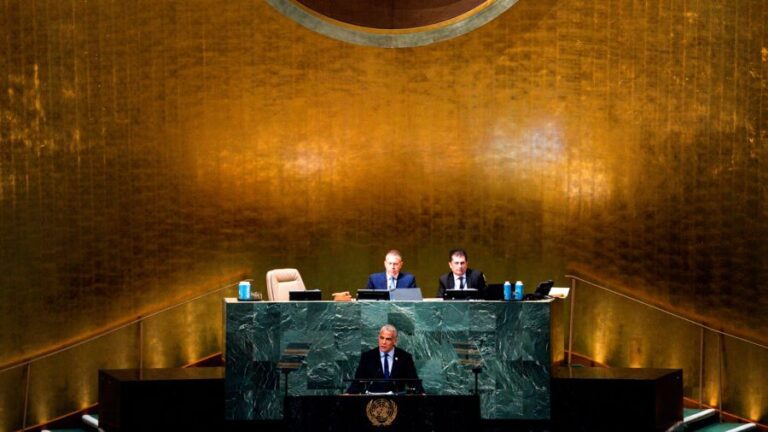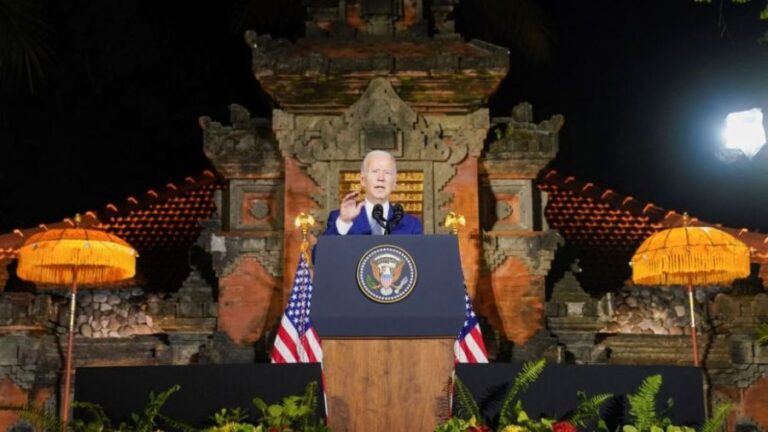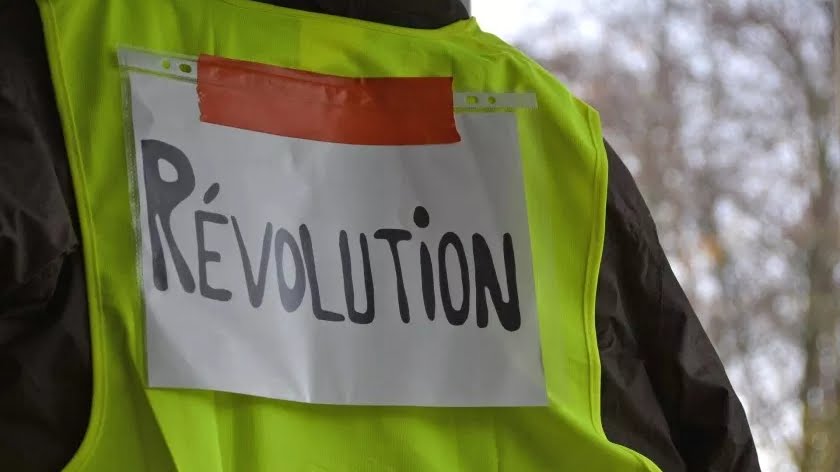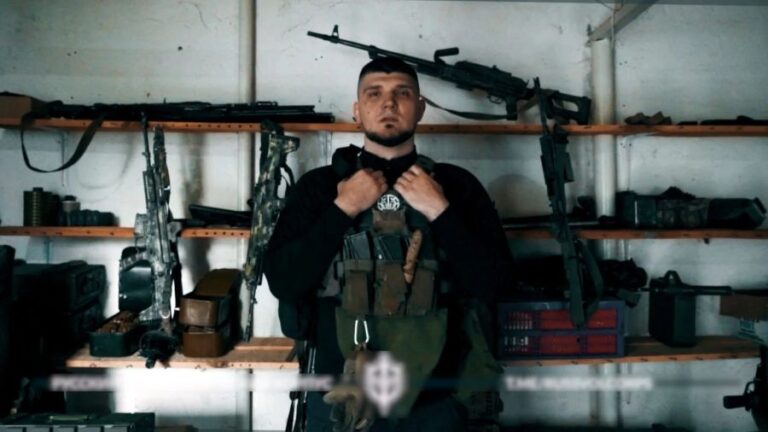Merkel’s Admission That Minsk Was Just a Ruse Guarantees a Protracted Conflict
Critics might claim that President Putin’s new outlook came eight years too late, but late is always better than never. Merkel manipulated him for years before finally coming clean with her betrayal, which taught the Russian leader the painful lesson that he can never trust any of his Western peers ever again. Instead, he’s now enthusiastically embracing his Great Power counterparts across the Global South, especially Indian Prime Minister Modi, who shares his grand strategic vision of a multipolar future.
The Former Chancellor Finally Comes Clean
Nobody can confidently claim to know how the latest phase of the Ukrainian Conflict, which was brought about by the special operation that Russia was compelled to commence to defend the integrity of its national security red lines there after NATO crossed them, will ultimately end. After all, the twists and turns thus far have caught everyone off guard, from Novorossiya’s reunification with Russia to Kiev’s two drone strikes earlier this week deep into its neighbor’s hinterland.
That said, it can be confidently predicted that the conflict will almost certainly remain protracted for years to come, with this forecast being based on former German Chancellor Merkel’s candid admission that the Minsk peace process was just a ruse for strengthening Kiev’s offensive military capabilities. Her words echoed those of former Ukrainian President Poroshenko who said the exact same thing earlier this year, but the difference is that he wasn’t ever regarded as President Putin’s friend, unlike Merkel.
Merkel’s Perception Manipulation Operation Against Putin
They each speak one another’s language fluently, spent their formative professional years in the former East Germany, preside over historical Great Powers, and their respective economies are clearly complementary, ergo why they closely cooperated on a wide range of issues. Over time, President Putin began to project himself and his grand strategic vision of a “Europe from Lisbon to Vladivostok” onto her, which she played along with by rhetorically reflecting in order to feed into his confirmation bias.
This whole time it turned out that she was just duping him by telling the Russian leader whatever he wanted to hear, however, with her superficial support of the Minsk peace process being the epitome of her manipulative approach to President Putin. She accurately assessed how passionately he wanted peace to prevail in Ukraine in order to unlock that country’s promising geostrategic role as the bridge between his Eurasian Economic Union (EAEU) and her EU per his aforementioned long-term vision.
Nevertheless, she had no desire to actualize this despite playing along with his mutually beneficial proposal, since Merkel’s own grand strategic vision was to complete Germany’s century-long plot to take control of Europe without firing a shot. To that end, she had to placate Russia by manipulating its leader’s perceptions so that he wrongly regarded her as the leader of a friendly state and thus wouldn’t pressure the bloc in ways that could impede her goal of expanding German influence over it.
Psychoanalyzing Putin
Since Merkel so masterfully played to President Putin’s wishful thinking expectations by falsely presenting herself as the same pragmatic economically driven visionary as he was instead of the zero-sum ideologue that she truly was this whole time, he was successfully duped into trusting her. The end result was that the Russian leader patiently restrained his Great Power for nearly eight years despite innumerable provocations against his co-ethics in the former Eastern Ukraine.
His mindset was that “the ends justify the means”, which in this context referred to his cost-benefit calculation that the costs being paid by the Russian people of Donbass would ultimately be worth it if his patience bought enough time for Germany to successfully convince Kiev to implement the Minsk Accords and thus eventually build a “Europe from Lisbon to Vladivostok” that would benefit everyone. In hindsight, the problem was that President Putin was the only leader who truly wanted this.
He was misled for nearly eight years by Merkel, with whom he closely bonded over her many years in office due to their personal similarities and her successful manipulation of his perceptions in getting him to wrongly think that she shared his grand strategic vision as was earlier explained. Being a bonafide statesman, he assumed that his peers – especially those representing Great Powers like Merkel was – were of the same professional caliber, hence why he took for granted that they were all rational actors.
Hindsight Is 20/20
The reality was altogether different though since President Putin turned out to be the last true Western stateman, which means that he was the only one operating on a rational basis while everyone else was advancing ideologically driven goals. He didn’t realize this until years later, having instead fallen under the false perception that they were all more or less pragmatic economically driven visionaries like he was largely due to the success of Merkel’s perception management operation against him.
Her extended charade in pretending to share his grand strategic vision was convincing enough for President Putin to let down his guard, take her words for granted, and assume that she’d see to it that Germany would ultimately get Kiev to fully implement the Minsk Accords. Had he suspected her of dishonesty, then he certainly would have abandoned this approach much sooner, but he completely fell for her act since it conformed with his confirmation bias of her as the rational leader of a Great Power.
This explains why he waited so long before ordering the special operation since he sincerely trusted that she shared his grand strategic vision of a “Europe from Lisbon to Vladivostok” that required a lasting peace in Ukraine in order to actualize. Instead, Merkel was ruthlessly seeking to complete Germany’s century-long plot to take control of Europe without firing a shot, which her successor Scholz all but admitted that he’s striving to do in the manifesto that he just published at Foreign Affairs magazine.
It’s not a coincidence that Merkel shortly thereafter came clean about her true intentions in playing along with the Minsk peace process since there was no longer any reason to remain coy about them. Scholz spilled the beans by bragging about Germany’s hegemonic agenda that he openly described as being driven by the desire to respond to threats that he claimed “most immediately” come from Russia. With nothing to lose, Merkel took off her mask and finally showed President Putin her true face.
There’s no doubt that he realized sometime prior to commencing his country’s special operation that she’d duped him for years, hence why he undertook that fateful step in late February, but now it’s on full display for the whole world to see as well. Merkel was the only Western politician whom President Putin sincerely trusted, which is one of the reasons why he held off on ordering the aforesaid operation for nearly eight years due to his ultimately false hope that she’d help ensure peace in Ukraine.
The Psychological Impact Of Merkel’s Betrayal
With her so brazenly admitting to betraying his trust by boasting that “Putin could easily have overrun [Ukraine] at the time” had she not played along with the Minsk peace process and thus got him to hold off on this almost a full decade, it’s unlikely that the Russian leader will ever trust anyone in the West again. This psychological insight adds crucial context to him coincidentally declaring on the same day as her interview dropped that the Ukrainian Conflict “might be a lengthy process.”
Quite clearly, he’s now wised up to the fact that this is truly a protracted struggle over the future of the global systemic transition, though Russia can still strategically win even in the scenario of a military stalemate in Ukraine. That’s because this outcome would lead to Indian-driven multipolar processes continuing to proliferate and thus irreversibly changing the course of International Relations. At this point of the New Cold War, Russia is fighting a defensive conflict, but time is actually on its side for once.
President Putin now knows that any lull in fighting will just be an opportunity for both sides to regroup, rearm, and inevitably resume offensive operations, which means that the strategic playing field is now level since he’s finally operating according to the same mindset as his opponents have been for years already. This will steel his resolve to continue doing everything possible to accelerate multipolar processes, which first and foremost requires holding the Line of Control (LOC).
Putin’s New Grand Strategic Vision
In pursuit of that most immediate objective, Russia would indeed resume participation in the previously sabotaged peace process so long as certain conditions are at least superficially met, but nobody should interpret that potential development as signaling strategic weakness on its part unlike in times past. The difference between then and now is that President Putin has learned many painful lessons so he’s not going to have his goodwill gestures taken advantage of anymore.
Whereas the Minsk peace process was in hindsight nothing but a means for manipulating President Putin’s perceptions in order to influence him into exercising restraint and thus buying time for Kiev to gear up for a final offensive in Donbass, whatever process serves as its successor will be nothing but a means for the Russian leader to buy time for multipolar processes to continue proliferating at the expense of the US-led West’s Golden Billion and their unipolar hegemonic interests.
President Putin’s grand strategic goal is no longer a “Europe from Lisbon to Vladivostok”, but to reform International Relations in full partnership with the countries of the jointly BRICS– & SCO-led Global South of which Russia is a part so that the world order becomes more democratic, equal, and just. This aligns with the vision that he put forth in his Global Revolutionary Manifesto that he built upon over the last two seasons, which can nowadays be described as his Great Power’s unofficial ideology.
Concluding Thoughts
Critics might claim that President Putin’s new outlook came eight years too late, but late is always better than never. Merkel manipulated him for years before finally coming clean with her betrayal, which taught the Russian leader the painful lesson that he can never trust any of his Western peers ever again. Instead, he’s now enthusiastically embracing his Great Power counterparts across the Global South, especially Indian Prime Minister Modi, who shares his grand strategic vision of a multipolar future.
The global systemic transition is presently proceeding along that path, but it still requires time in order to become irreversible, which in turn necessitates Russia holding the LOC. Whether through military, political, or a combination of those two aforesaid means, President Putin is expected to do everything in his power to buy time for these Indian-driven multipolar processes to continue proliferating to that end, which guarantees that the Ukrainian Conflict will remain protracted regardless of whatever anyone says.







